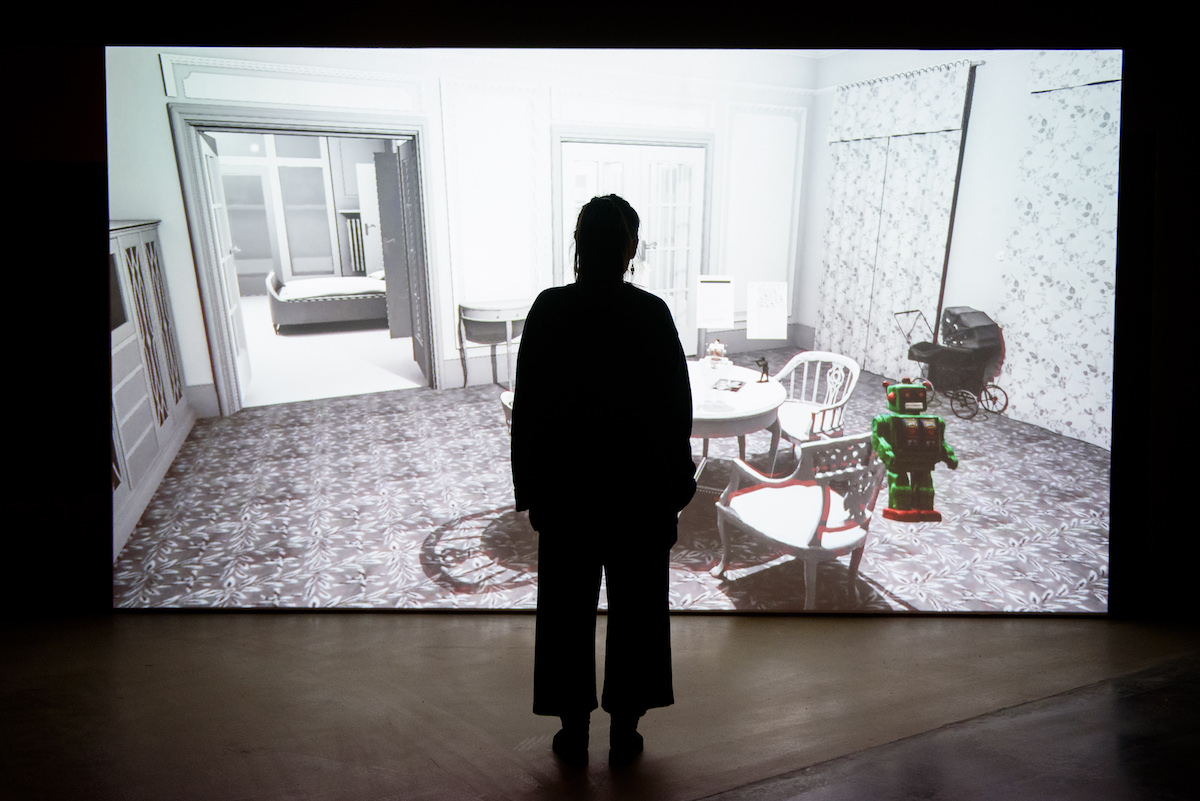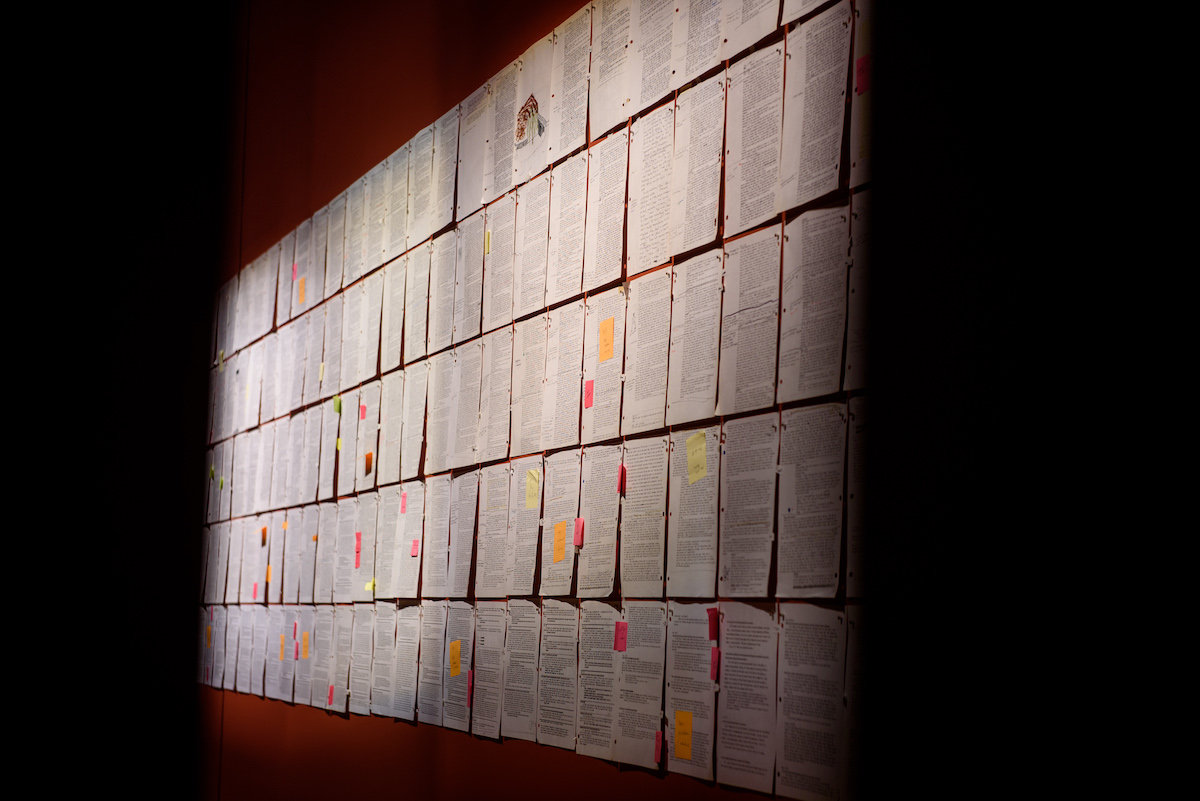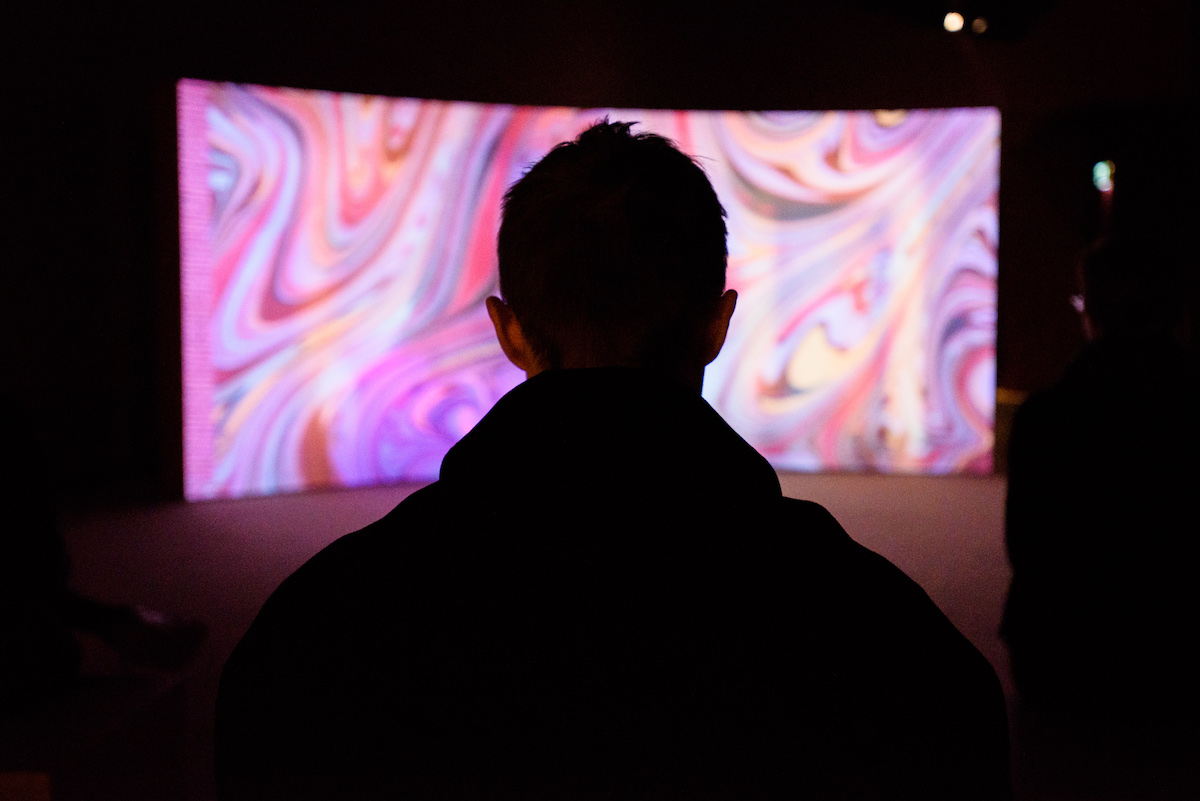
Prepare to step into the disjointed and eerie dreams of a woman born in Czechoslovakia just before the start of the Second World War.
Proud granddaughter Daria Martin has created a small but powerful exhibition within the The Curve gallery space at the Barbican Centre to explore the written memories of Susi Stiassni.
The ‘dream diaries’ used to create Tonight the World span 35 years and consist of over 20,000 pages of meticulously detailed descriptions; first written for psychoanalysis but later as more of a therapeutic pastime.
Martin, a London-based artist, filmmaker and 2018 Jarman Award-winner, has chosen to bring the writing of her grandmother to life through gaming and film.

The exhibition begins with a large screen showing a black and white play-through of a game. From the perspective of the character in the virtual world, we are taken through Stiassni’s childhood home in Brno. It engages with glimpses of the diary archive and objects connected to the dreams.
Stiassni frequently wrote about her childhood home, even though she never returned after Nazi occupation – her traumatic memories of that time stayed with her throughout her life.
And while the video game takes the character through buildings full of furniture and objects of importance to Stiassni, there are few other people around.
It is somewhat unnerving, as if walking alone in her colourless dreams.
This slight discomfort is exacerbated by the spaces between each part of the exhibition. Visitors walk through the dark corridors of The Curve, as if moving from one memory to another.

The darkness, accompanied by the tall curved walls, make movement throughout the exhibition somewhat disorienting – again, much like a dream.
The second half of Tonight the World is a large illuminated wall covered with annotated parts of Stiassni’s diary. It is vast, highlighting just how much information was put on to paper. And even though so many parts of her dream diary is featured, there are still many thousands of pages which haven’t been included.
The final section, again connected with a dark and vast corridor, comprises a semicircular screen repeating Martin’s 16mm anamorphic film that bears the same name as the exhibition, shot on location at her grandmother’s old home.
Martin has reimagined five separate dreams which reflect on re-occurring themes of anxiety and intrusion. In one, Stiassni feels like a rabbit being chased in the woods near her home at night, singing to the hunters to stop them attacking her.
Another is of her wandering through the house, in a state of low panic and confusion, eventually finding two people playing with old army toys, and scratching at a hole in a wall.
Through the hole, Stiassni sees eyes looking back at her. She then punches through it, pulling out a glove. Eventually she kicks the wall through to find what she first believes to be a soldier but, in the end, is just an old man cooking and eating in his kitchen.
It is utterly bizarre, a little bit funny, and ever so slightly unnerving.

Martin envisages that the installation will become simultaneously a portrait of her ancestor, a self-portrait, and an exploration of intergenerational trauma, loss and resilience.
And it is perfectly made for the Barbican Centre’s Curve gallery. Martin noted that she was “intrigued to discover” that The Curve was originally designed as a liminal space: a sound buffer to wrap around the back of the Concert Hall.
She said: “My exhibition explores another sort of ‘backroom’ – a lost dream diary archive”.
She is able to use the unusual space to help tell an emotionally rich story of someone living through trauma and then learning how to deal with the repercussions of such an experience.
Daria Martin: Tonight the World is a free exhibit running until 7 April as a part of the Barbican Centre’s Life Rewired season.






